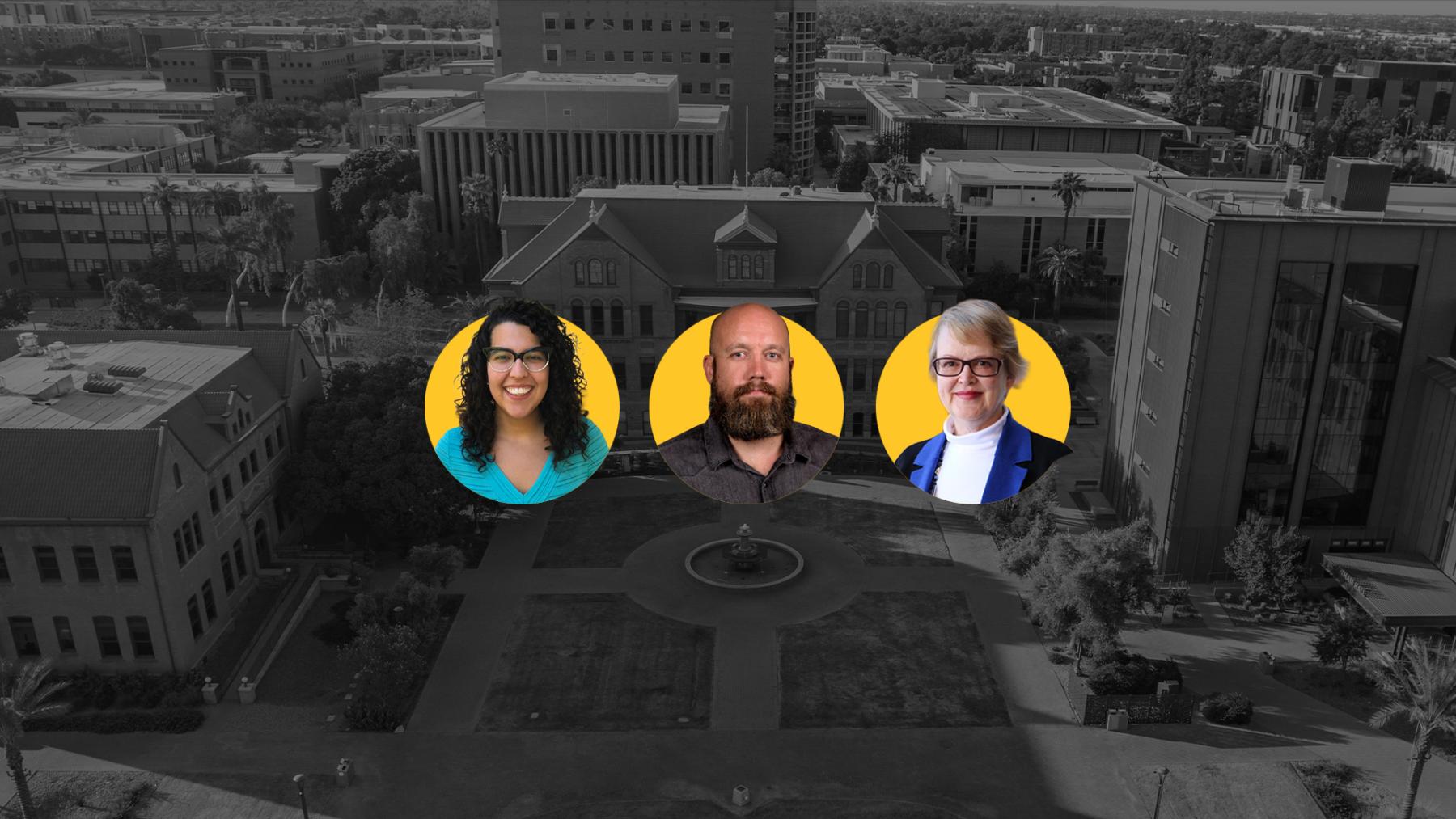
Doctoral candidate reset: I'm ABD, now what?
Embarking on the dissertation journey can feel like being dropped into unfamiliar terrain without a map. That’s why the Graduate College hosted a recent Lunch and Learn session — “Doctoral Candidate Reset: I’m ABD, Now What?” — a virtual event designed to support doctoral candidates through the challenging and often isolating final phase of their PhD programs.
Panelists Lisa Anderson, professor in the School of Social Transformation and senior associate dean of academic affairs and engagement, and Mitch Hobza, senior program manager for distinguished graduate fellowships at the Lorraine W. Frank Office of National Scholarships Advisement, brought both academic expertise and practical personal insight.
Isolation, uncertainty and momentum
Anderson began with a truth many doctoral candidates understand well: the dissertation phase can be isolating. After years of structure, courses and collaboration, candidates often find themselves working solo on a significant high-stakes research project.
“You’ve never done this before — and you don’t really know what it will look like when it’s finished,” she said.
She emphasized the emotional toll and unpredictability of this phase and encouraged students to develop a sense of rhythm and routine. “Set a schedule,” she said. “Even if it’s one hour a day. Make it a habit.”
A dissertation is written hour by hour
Hobza echoed the importance of consistent effort. “A dissertation is written hour by hour,” he said. “Don’t underestimate the power of working on it a little each day.”
He suggested structured accountability like joining a writing group, especially for those working remotely. He also shared a creative strategy from his own experience: “I paid myself a dollar a page. When I finished a chunk of writing, I bought myself a video game. Whatever works to keep going — do that.”
Tools, feedback and formatting
Panelists highlighted the importance of working smart:
- Use formatting tools like the Graduate College’s Format Wizard early and often
- Keep up with citations as you go
- Don’t wait for feedback to make progress — “Write the next chapter while waiting for edits on the previous one,” Anderson advised
And above all, be kind to yourself. Feedback is about improving your work, not a judgment of you. You are not your dissertation,” Hobza said. “Expect revisions. Everyone gets them.”
Navigating the job market
The discussion concluded with advice on the post-dissertation transition.
Anderson encouraged students to enroll in her Preparing Future Faculty course offered in the fall. “We walk you through the job market, application materials and interview prep,” she said, adding that career paths exist both inside and outside academia.
Hobza added, “Think deeply about what you want to do, not just what your advisors expect. There are fulfilling roles in research, staff positions, industry and beyond.”
Final reminders and resources
- Need a workspace? Visit the Student Engagement Center on the Tempe campus — it’s quiet, has docking stations and offers snacks on Wednesdays
- Struggling with time management? Try daily writing goals, even a paragraph at a time. Leave a half-finished sentence to jump-start tomorrow
- Getting feedback? Only your committee’s revisions are required. Other suggestions can be politely acknowledged and filtered
You’ve got this
The path from ABD to PhD is no small feat, but consistency, community and self-compassion go a long way. As both panelists reminded attendees — the best dissertation is a finished dissertation.
📌 Want to catch events like this in the future? Stay up to date with Graduate College programming and explore upcoming workshops, writing groups and career preparation events. Visit the engagement space in Interdisciplinary B second floor or contact the Graduate College team.
More stories from the Graduate Insider

Finding your flow: Managing the graduate writing process
Graduate writing can feel like a marathon—long, demanding, and full of unexpected detours. But as Tristan Rebe, Program Manager for the Graduate Writing Center, reminded students in the Grad15: Managing the Writing Process webinar, writing is not about perfection—it’s about progress. “The best dissertation is a done dissertation,” Rebe said, quoting Robert Frost: the best way out is through.

Promoting resilience and well-being in Ghana — and across the globe

From practice to presentation: How to deliver a winning faculty job talk
Giving a job talk can feel like the most high-stakes presentation of your academic job search. It’s not just a research seminar—it’s your opportunity to demonstrate vision, communication skills, and fit within a department. In a recent Lunch and Learn, faculty members Associate Professor in School of International Letters and Cultures, Anita Huizar-Hernandez, Professor in School of Life Sciences Jeffrey Jensen, and Professor in Department of Physics Patricia Rankin shared concrete strategies to help graduate students and postdocs succeed as future faculty candidates.